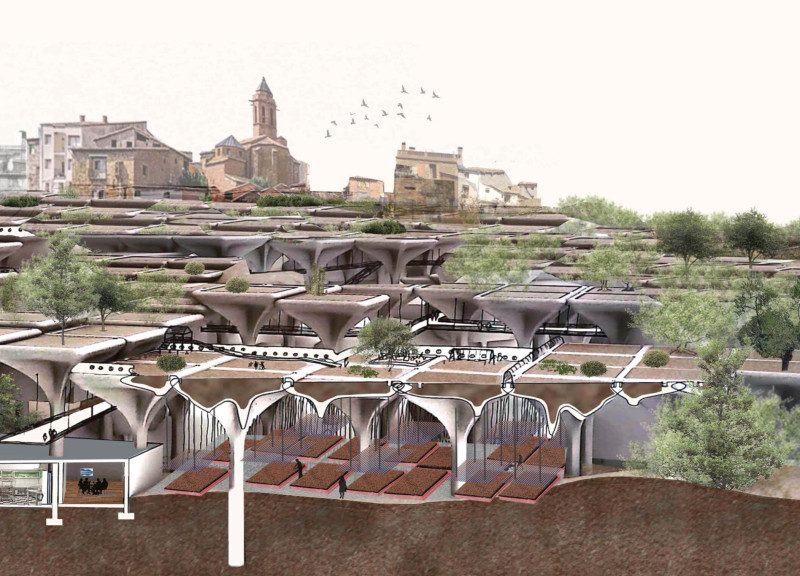5 key facts about this project
The Gaudi La Coma Artists' Residence Project, known as MEM-FAB, is located in a medieval village and combines spaces for artistic creation with areas for reflection and remembrance. The overall design concept aims to connect themes of memory and creativity, bringing together yoga spaces, art workshops, living quarters for artists, and a crematorium. This relationship between life and death invites visitors to engage with their surroundings in meaningful ways.
Forest of Columns
A prominent element of the design is the "forest of columns." These columns play both a structural and visual role in the project. They create elevated surfaces that respect the views of the site while adding visual interest. From a higher perspective, the arrangement of columns creates a pixelated effect, blending the built environment with the natural landscape in a unique manner.
Functional Spaces
The project incorporates a range of functional areas, such as planting beds, seed storage, yoga spaces, a morgue, art workshops, and residences for artists. This layout encourages a natural flow between different activities and everyday life, supporting community interactions. The upper level includes a crematorium and hostel, highlighting the themes of healing and contemplation and offering spaces for quiet reflection.
Sustainability and Agricultural Integration
Sustainability is a key focus of the design. It features agricultural areas designed for both edible and non-edible plant cultivation. The use of artificial lighting helps create ideal growth conditions, reducing energy use while enhancing the experience of cultivation. Additionally, a tunneling system links different modules, improving spatial organization and allowing various programmatic elements to connect smoothly.
The project conveys a distinct character where life, creativity, and memory come together. Each space is thoughtfully arranged to enhance the overall experience for both artists and visitors. The presence of the forest of columns is a vital aspect, promoting engagement and interaction with the surroundings.






















































